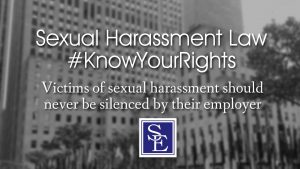Employees within the Hudson County Prosecutor’s Office could face serious disciplinary action as a result of a workplace complaint investigation conducted by an outside law firm in response to unlawful employee conduct. The investigation was prompted by a series of offensive social media posts shared by Hudson County Prosecutor’s Office employees, posted on Facebook and within their internal workplace messaging app, “Slack”.
Under New Jersey law, employers must maintain an effective policy against unlawful harassment and discrimination at the workplace. With an effective anti-harassment policy in place, harassment investigations may shield an employer from hostile work environment claims under the New Jersey Law Against Discrimination. The New Jersey Law Against Discrimination is one of the nation’s strongest legal protections for employee civil rights against discrimination and threats of harassment, including sexual harassment. The New Jersey Law Against Discrimination requires employers to investigate all complaints of harassment and discrimination promptly, thoroughly and completely.
Serious hostile work environment concerns emerged at the Hudson County Prosecutor’s Office after racist jokes’ and offensive social media comments raised tensions amongst assistant prosecutors. In March 2021, the initial internal investigation began with an examination of Assistant Prosecutor Bill Specht and Agent Kelly Sisk over “offensive and sickening” posts the two allegedly made on social media and shared via Slack. Screenshots from March 2021, were shared of Specht’s conversations within the workplace Slack chatroom, writing that “Infoshare identifies as Mexican. It sleeps when the sun is hottest.” Specht additionally shared a number of racially offensive Facebook posts, following the police killing of George Floyd and the shooting of Jacob Blake. These posts alluded to the exoneration of law enforcement officials in officer-involved shootings, an especially controversial subject for someone in his position.
 New Jersey Employment Lawyers Blog
New Jersey Employment Lawyers Blog


